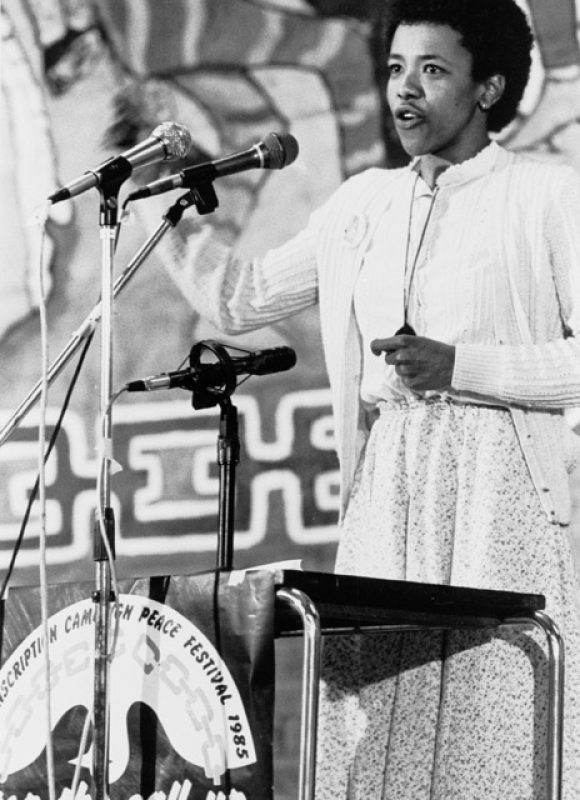PIONEER
Cheryl Carolus

United Democratic Front founding member | Politician | Human rights activist
Born: 20 April 1959
“And the bottom line for me is that if you want a constitution where now you’re going to regulate society in our country, it's going to need a conscious effort of people. People are so embittered by notions of authority and how it’s been abused, in fact, deprived them, as opposed to protecting their human rights … at the end of the day [you want people to] be able to say that that's my constitution.”
Who is
Cheryl Carolus?
Student leader, teacher, activist and she was one of the founders of the United Democratic Front (UDF) and United Women’s Organisation (UWO).
Professions
and Roles
Teacher, activist, diplomat, African National Congress (ANC) politician, founding member of UDF and UWO.
Best Known For
Instrumental role in founding the UDF and the UWO, activism against apartheid, and contribution to the negotiations process.
Life highlights
- Carolus registered for a BA degree and a teacher’s diploma at the University of the Western Cape (UWC). She was active in the South African Student’s Organisation and in 1976 was detained for five months.
- Carolus became a History and English teacher and was involved in the 1981 school boycotts.
- In 1981, Carolus registered at UWC for a BA Law degree and served on the SRC.
- Carolus was instrumental in the formation of the UDF in 1983, and served as its general secretary as well as a member of its National Executive.
- Carolus was a founding member of the UWO, and served as general secretary of the Federation of South African Women (FEDSAW) from 1987.
- In 1986, Carolus travelled to Sweden to meet with the International Centre of the Swedish Labour Movement as a UDF delegate. On her return to South Africa she was arrested. She was released but was restricted in her movements and not allowed to take part in UDF activities.
- In 1989, Carolus became the Western Cape spokesperson for the Defiance Campaign organised by the Mass Democratic Movement. That same year she served as a member of the joint delegation of the UDF, Congress of South African Trade Unions and the National Education Crisis Committee in attending the Organisation of African Unity meeting in Harare. This was the first occasion where South Africans had attended the meeting. The delegation presented a document with conditions for negotiations in South Africa.
- In November 1989, Carolus was again arrested and detained. She was released after 10 days.
- After the unbanning of the ANC in 1990, Carolus formed part of the team of ANC representatives that met with the government at Groote Schuur. She was also elected as a member of the interim leadership group of the newly launched South African Communist Party.
- In 1991, Carolus was elected to the National Executive Committee of the ANC and also served on its National Working Committee.
- In 1994, she declined to stand for Parliament and was elected deputy secretary-general of the ANC.
- In 1998, Carolus assumed the post as South Africa’s High Commissioner in London until 2001.
- In 2001, she returned to South Africa as Chief Executive Officer of South African Tourism until 2004. She joined the private sector thereafter.
IN THEIR OWN WORDS
“I would not allow a certain class of people to undermine me. The Black Consciousness Movement of my time taught us to stand up for our rights. I worked with the likes of the late Steve Biko, Mamphela Ramphele, Terror Lekota, and Dorothy Nyembe, one of the women who suffered under apartheid without much support.
Don’t wait for handouts, get up and do it yourself and other people will recognise you and help you.”
– Cheryl Carolus
“And the bottom line for me is that if you want a constitution where now you’re going to regulate society in our country, it’s going to need a conscious effort of people. People are so embittered by notions of authority and how it’s been abused, in fact, deprived them, as opposed to protecting their human rights … at the end of the day [you want people to]be able to say that that’s my constitution.”
– Cheryl Carolus
